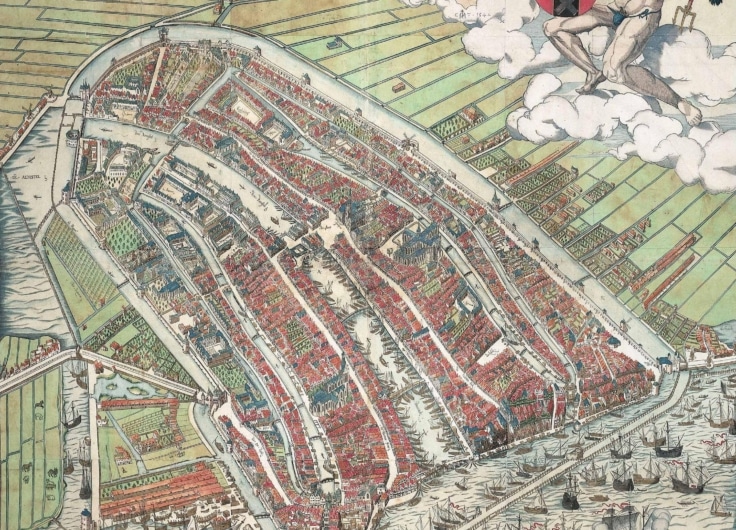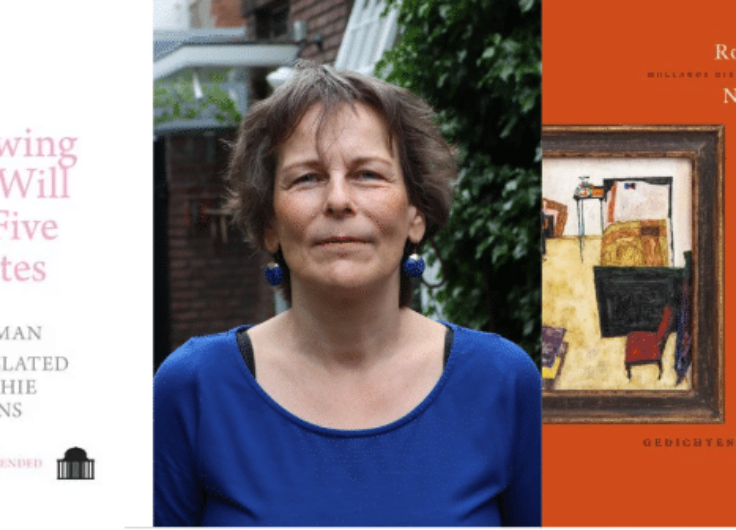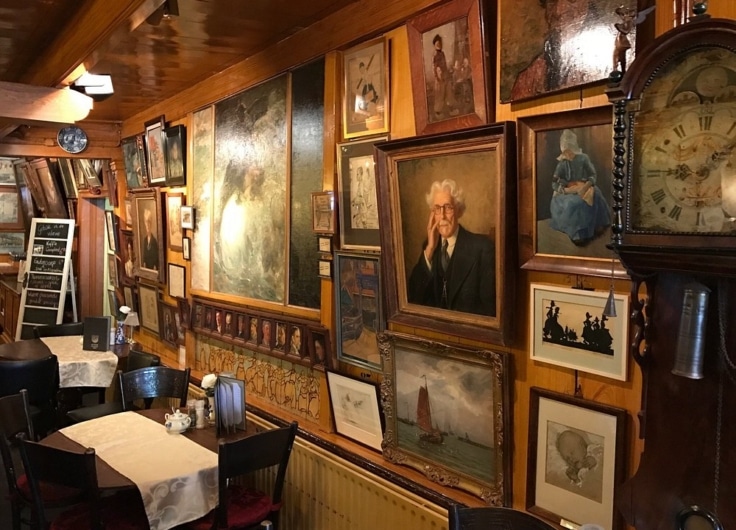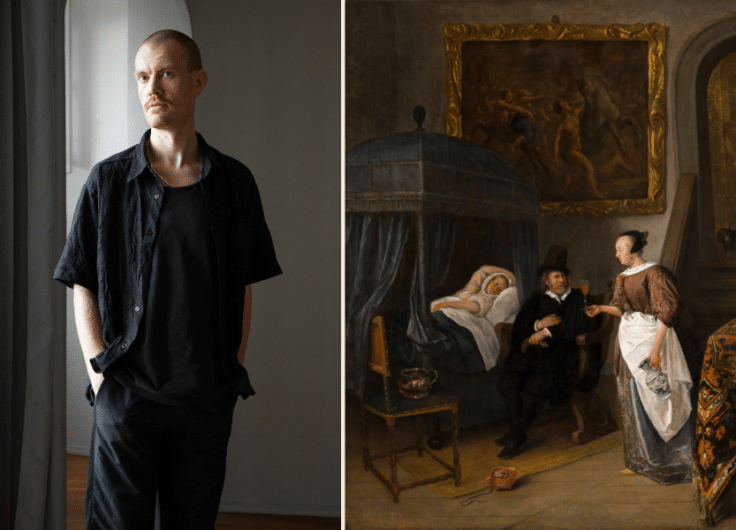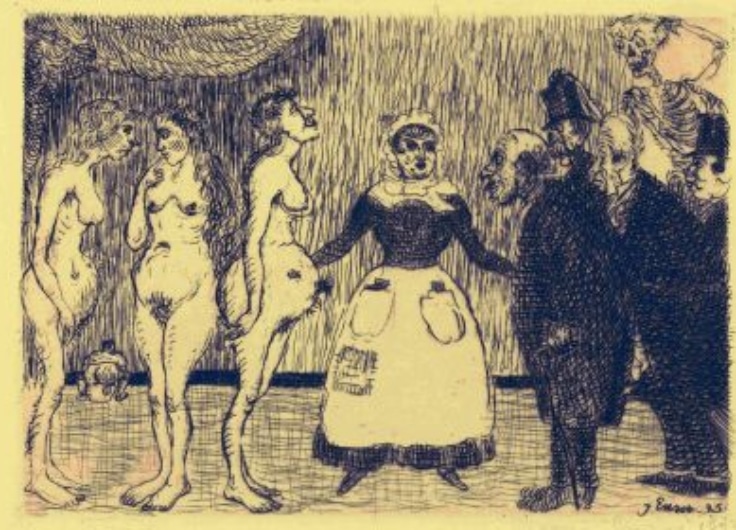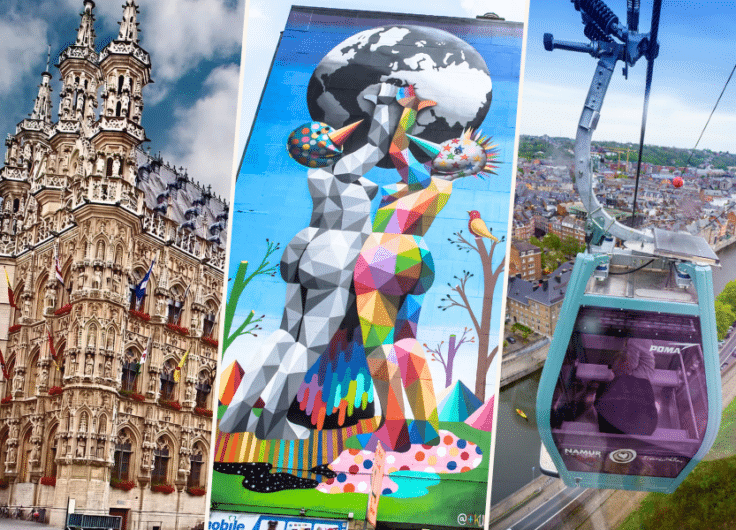Croissants, French Fries and the Rainbow Lollipop of Language
Not being able to travel: it’s too bad for Dutch linguist Marten van der Meulen. He misses the new tastes, smells, and views that one discovers on holiday, but also the little language findings one makes in unfamiliar surroundings. ‘As a sixteen-year-old boy, I made the unforgivable mistake of ordering French fries in Brussels.’
I had just ordered some sandwiches from a bakery, on the touristy Puerto de Frutos in Tigre, a town just north of Buenos Aires. While I was waiting for my order, I looked at the display case, which showed all kinds of exotic bread and pastries with small, Spanish-language name tags attached to them. There was also a rather normal looking croissant, with a card indicating the word medialuna. My gaze wandered further, because I could get that same sandwich at home.
But then I suddenly realized something about the word I had just read. Medialuna. Luna means moon, that’s as far as even my rudimentary knowledge of Spanish reached, courtesy of the 90s cover of Hijo de la luna. Now the croissant was shaped exactly like a half-moon, with media indicating half; Could the name of this sandwich actually be half-moon, named after its shape?

© Wikimedia Commons
But wait a minute – The word croissant itself, reminds me of the crescent moon. This could not be a coincidence! And indeed, if you take a look in the etymological dictionaries, you will soon find out that this sandwich is of course named after the crescent moon. The origin of the name also turned out to be rather interesting historically, similar to the origin of the names of other kinds of Argentine delicacies.
So, I needed another language to comprehend the meaning of a word in my own language, which in itself is not so crazy. You often need a little distance, a little perspective, to appreciate something, and there is one activity that can provide that. One ultimate perspective-giving combination of a different environment, a different language, finally time to reminisce: travelling.
I needed another language to comprehend the meaning of a word in my own language
Now, of course, you can find out the origin of the word croissant at home behind your computer. But that doesn’t make a lasting impression. You have to experience language. I only found out that Herzegovina means duchy
when I was in Bosnia-Herzegovina. And although I normally have nothing to do with the fries-or-chips war here in Utrecht, deep in chips-territory, that battle is very much alive for me. As a sixteen-year-old boy, I made the unforgivable mistake of ordering chips in Brussels. I got one soggy potato stick, amidst loud laughter from bystanders. Well, I won’t make that mistake again.
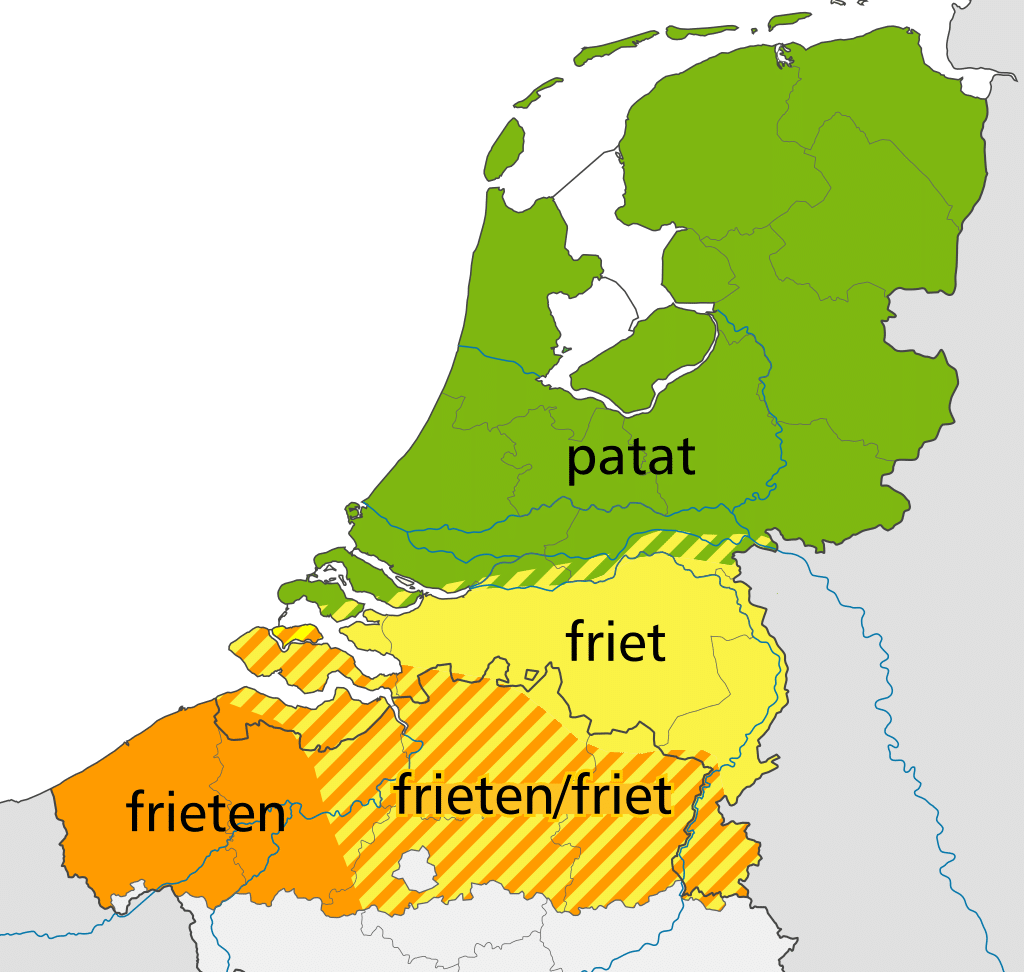 The chips (patat) and fries (frieten/friet) borders in Flanders and the Netherlands in 1972
The chips (patat) and fries (frieten/friet) borders in Flanders and the Netherlands in 1972© Wikipedia, CC BY-SA 3.0
The experience of language is about more than just words. Take multilingualism. I am repeatedly confronted with this in everyday life. In the bus, for example, the instructions for Good Behavior in Public Transport are indicated in both English and Dutch. But only when I travel, I begin to think about those kinds of instructions. The message is often written differently in one language than the other language. In the Thalys it says Verboden te roken
(forbidden to smoke) next to Smoking not allowed; these expressions definitely mean something else. Forbidden or not allowed? That is a difference in meaning. But is this difference also commonly used in those languages; is it really said like that in English? What does that say about how we deal with authority in different languages/cultures? Or is this nothing more than the Dutch perception of the polite Englishman/woman?
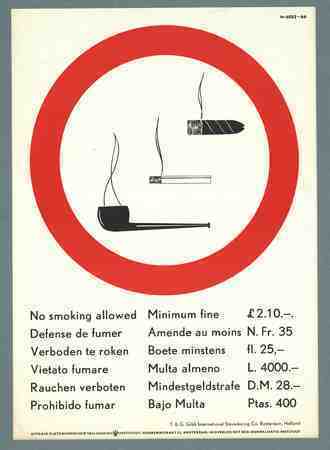
Or look at the languages of such signs, or rather, the languages we most commonly encounter in public statements: French, German, and English. I understand that those languages are dominant, and it is precisely those languages that we are taught in school. They are the languages of the countries around us, they are the languages of the cultures with which we have important historical socio-cultural ties. Perfect, now I don’t have to think about these any longer.
Until one time I found myself at Schiphol Airport. It was the evening of 4 May, so a message was called out regarding the two minutes of silence that would take place. Let’s hope everyone understands the message, I thought, otherwise it’s a little surprising. And suddenly I thought to myself: do these languages cover the collective language skills of the travellers who travel through Schiphol? Wouldn’t it be more convenient to also use Spanish, Arabic, or Japanese? What made the announcement even more interesting was that German was the last language that was announced. Was that symbolic? Is there actually more symbolism in the order in which we rearrange translations?
I can hardly describe how happy these kinds of questions make me. It makes me feel like a kid in a candy store. The child does not put every piece of candy he buys into his mouth. No, each new piece of candy is carefully placed on the workbench and meticulously dissected. I want to understand each new piece of language candy.
I can hardly describe how happy these kinds of questions make me. It makes me feel like a kid in a candy store
To unwrap another of those language sour sweets from its travelling candy wrapper: I once went for a bike ride along the River Torrens (Karrawirraparri in the indigenous Kuarna language) in Adelaide, Australia. Almost immediately, I was captured by the thought of when a river is called a river. Because this waterway occasionally became a small stream, a brook, far too small to really be a river. But it kept being called a river. By way of contrast, I have been making a daily detour
along the Vecht in Utrecht since the beginning of the year. Does this lead to crazy language contemplations? No, nothing like that at all.
The pity, of course, is that travel is not possible now, because of the coronavirus pandemic. It really sucks. Sure, it’s nothing compared to the terrible impact the virus has on the physical and mental health of many people. That is also perspective. But still, I can’t wait to travel again, so that I can snack on the endless rainbow lollypop of language.




